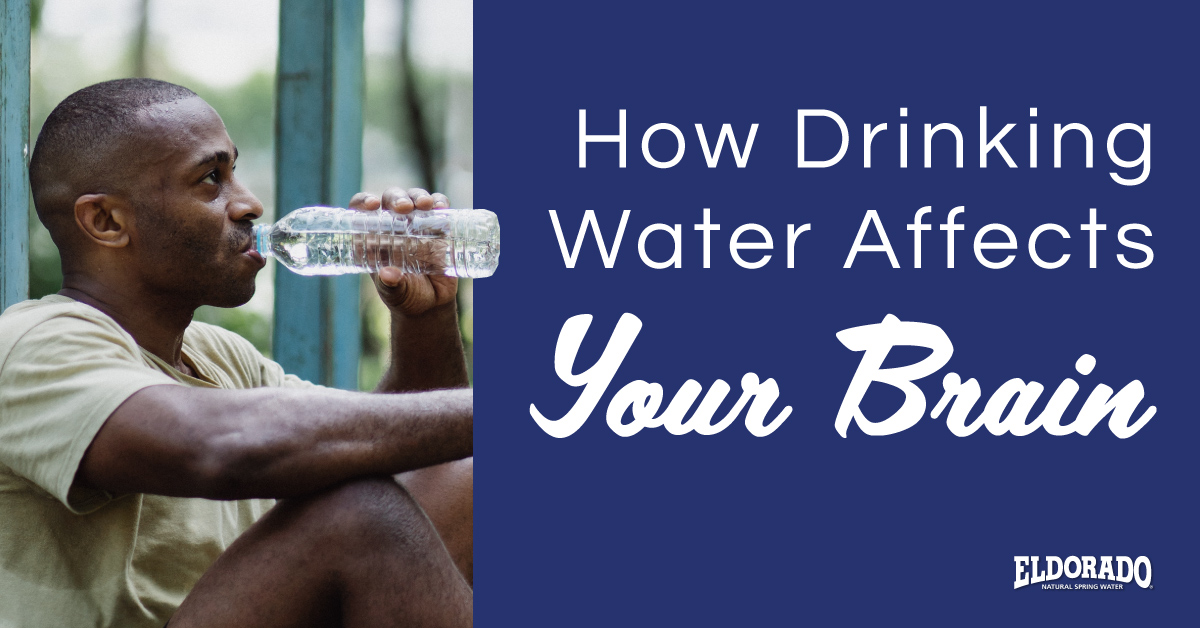How Drinking Water Affects Your Brain

The human body is roughly 60% water. So, not surprisingly, there is water in the brain, just as in every other organ in the body. In fact, the brain is approximately 75% water.
So, what happens to the water in brain tissue if we become dehydrated? The short answer is: Nothing good!
Cognitive Changes From Dehydration
The Mayo Clinic says the human body loses between 65 and 95 ounces of water daily by eliminating waste, sweating, and breathing. Needless to say, if your water intake doesn’t exceed your output, you’ll become dehydrated, meaning your body doesn’t have the fluids it needs to function optimally.
Some of the first symptoms of dehydration are related to brain functioning. You may have noticed yourself developing a mild case of “brain fog” in the mid-to-late afternoon. Many people attribute that to having been at work for several hours and getting fatigued. That may be true in some cases, but more often, it’s the result of dehydration. And if it worsens, it can feel like you’ve suffered a head injury.
Experts say that falling below your minimum hydration level by just a few percentage points (i.e., mild dehydration) can cause brain shrinkage, during which the brain pulls away from the skull. It’s a very small change in the brain’s overall dimensions, but it can have an outsized impact on your cognitive processing.
So, if you hear someone talking about this issue and asking, “What causes brain shrinkage and a decrease in brain power?” the answer is dehydration. Remember that as powerful as the human brain is, it’s still a very sensitive organ!
Other Symptoms of Inadequate Fluid Intake and Dehydration
If you aren’t drinking enough water, you may experience other symptoms besides brain fog. These include:
- Dehydration headache
- Dizziness
- Dark urine
- Decreased urination
- Dry mouth
- Loss of appetite
- Bodily fatigue
- Muscle cramps
- Intense thirst (but some dehydrated people don’t feel thirsty at all)
- Elevated blood pressure
People also wonder, “Can dehydration cause nausea?” Yes, it can.
To Avoid the Need for Dehydration Treatment, Stay Hydrated!
It’s possible to encounter circumstances beyond your control that result in dehydration. However, in most cases, you can prevent the need for medical dehydration treatment by staying hydrated. That means planning ahead.
For example, if you’ll be participating in a strenuous physical activity, particularly in hot weather, you need to drink plenty of water before, during, and after the event. Obviously, you lose water much more quickly when working hard in the heat.
If you develop severe dehydration, you run the risk of serious health conditions like renal (kidney) failure, hypotension (low blood pressure), and others. So, if drinking water doesn’t improve your dehydration symptoms, you should seek prompt medical attention. That can involve drinking an oral rehydration solution or getting intravenous (IV) fluids.
Don’t Let Dehydration Adversely Affect Your Brain and Body!
Staying hydrated is easy if you make it a priority. And when Eldorado Natural Spring Water is part of your hydration plan, staying hydrated is also delicious. Our water has won numerous awards in prestigious international water-tasting events.
So, drink up! Your brain and body will thank you!







